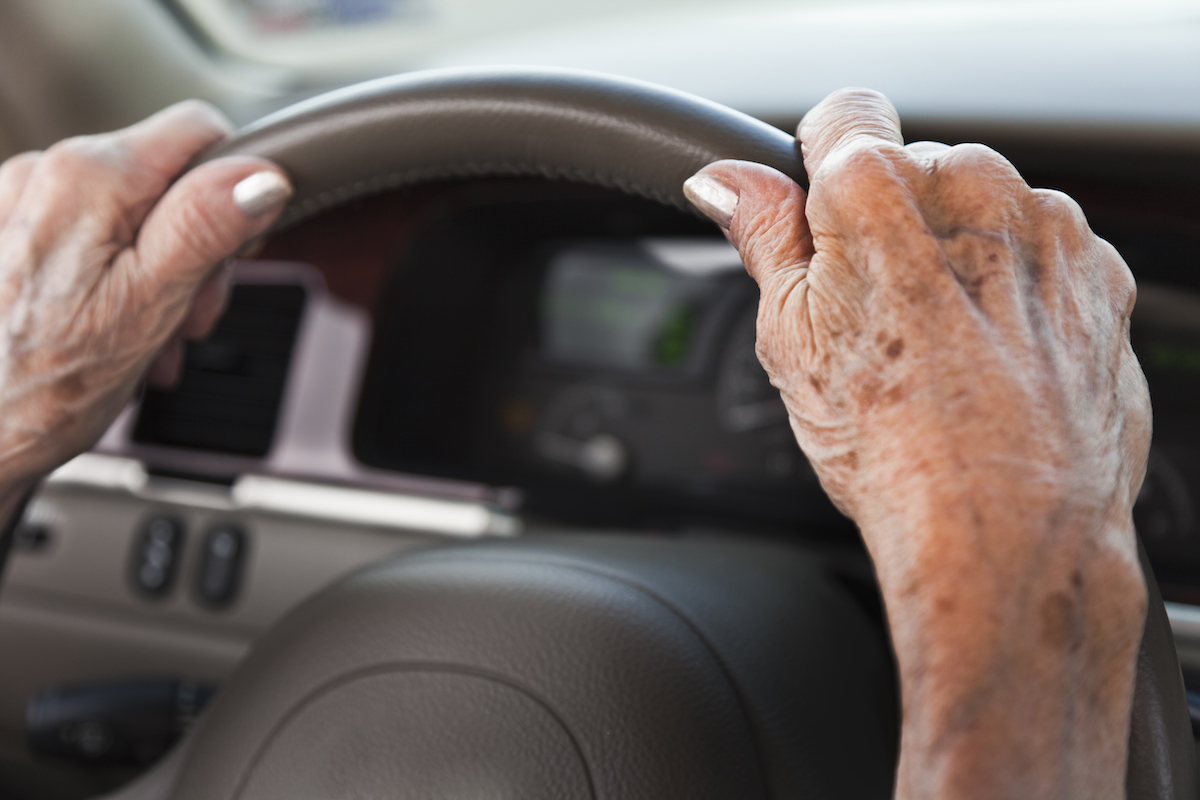RELATED: If You Notice This at Night, It May Be an Early Alzheimer’s Sign, Study Says. The study, which was published on June 14 in the journal Alzheimer’s Research & Therapy, used a GPS device to track the driving habits of 139 participants over the age of 65. About half of the participants—64, to be precise—had very early or “preclinical” Alzheimer’s, while the other 75 participants did not. The differences that the GPS picked up on between the two groups showed that a couple of distinct habits could be early indicators of Alzheimer’s: driving more slowly and making more abrupt changes while on the road. The study also found that people with preclinical or very early Alzheimer’s also traveled less at night and drove fewer miles overall. The places people with preclinical Alzheimer’s traveled also shifted. According to the study, they visited a more limited range of locations and stuck to a fewer number of routes to get there. That’s likely because people with cognitive decline tend to have trouble following directions and often get lost. Laura Phipps, PhD, of Alzheimer’s Research U.K., who was not involved with the study, told the BBC that the results are “really interesting” and align with the fact that family members of a person who is later diagnosed with Alzheimer’s often notice changes in their driving habits. “What they’ll say to us is, often one of the first symptoms or signs that they noticed is that their loved one started… to get lost,” Phipps said.ae0fcc31ae342fd3a1346ebb1f342fcb RELATED: 91 Percent of Older Adults With Dementia Have This in Common, Research Says. The University of Toronto researchers used the data from the GPS to create a model that could be utilized to predict a person’s likelihood of developing Alzheimer’s with 82 percent accuracy. When also taking into consideration the person’s age, the model predicted preclinical Alzheimer’s with 88 percent accuracy. “How people move within their daily environments, ranging from the places they visit to how they drive, can tell us a lot about their health,” the study’s lead author, Sayeh Bayat, a PhD candidate at the University of Toronto, told the BBC. “Using these very few indicators…you can really, with very high confidence, identify whether a person has preclinical Alzheimer’s disease or not.” For more health news and information delivered straight to your inbox, sign up for our daily newsletter. Another study out of Columbia University’s Mailman School of Public Health, which was published in the medical journal Geriatrics in April, found that the number of times someone hard brakes while driving is another reliable early indicator of dementia. These researchers installed recording devices in the cars of 2,977 participants between the ages of 65 and 79. When they started recording in August 2015, none of the participants had medical histories of mild cognitive impairment (MCI) or other degenerative medical conditions. Over the course of the four-year study, however, 33 participants were diagnosed with mild cognitive impairment and 31 were diagnosed with dementia. Looking at their driving habits, the researchers determined that age was most predictive of mild cognitive impairment and dementia, but behind that risk factor were the length of driving trips and the number of hard-braking and hard-accelerating events, similar to the University of Toronto study’s findings. “Driving is a complex task involving dynamic cognitive processes and requiring essential cognitive functions and perceptual motor skills,” the study’s senior author Guohua Li, MD, DrPH, professor of epidemiology and anesthesiology at Columbia Mailman School of Public Health and Vagelos College of Physicians and Surgeons, said in a statement. “Our study indicates that naturalistic driving behaviors can be used as comprehensive and reliable markers for mild cognitive impairment and dementia.” RELATED: 40 Early Signs of Alzheimer’s Everyone Over 40 Should Know.



